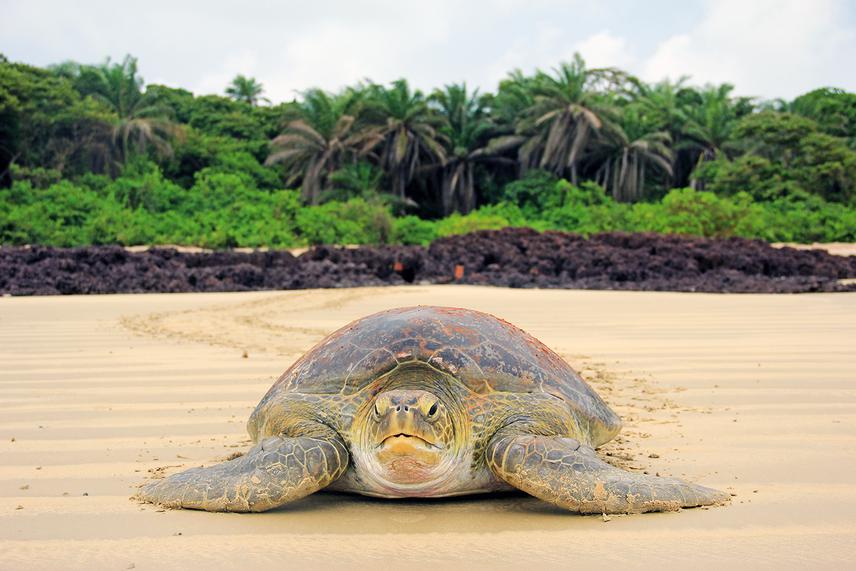Ana Rita Caldas Patricio
Other projects
27 Jun 2018
Impacts of Climate Change on West African Green Turtles and Marine Turtle Conservation in Guinea-Bissau
The project aims to estimate impacts of predicted climate change to green turtles nesting at the Bijagós Archipelago and assess the taxon’s potential for adaptation.

Green Turtle at Poilao. © Rita Patricio.
The Bijagós Archipelago, Guinea-Bissau, hosts the most important green turtle rookery in Africa. Climate change is a major threat to sea turtles and their habitats, as they depend on sandy beaches, to which they exhibit philopatry, for reproduction, and they have temperature dependent sex determination (high incubation temperatures yielding more females and low temperatures more males). Yet climate change impacts in the region remain unstudied. I will estimate the impacts of predicted changes in temperature, precipitation and sea level, at the Bijagós. Additionally, using established genetic markers, I will assess mating patterns in the population. Local conservation personnel and community members will be trained in monitoring and sampling techniques. This interdisciplinary project will make an important contribution to the global evaluation of the capacity for sea turtle adaptation to predicted climate change and will encourage long-term monitoring by local institutions, enhancing long-term conservation.
Specific objectives:
1. Describe the phenology and nest site selection, their environmental determinants and the implications for clutch survival and fitness.
2. Map current nest distribution using GIS.
3. Estimate current hatchling sex ratios and model how these will be impacted under climate change scenarios.
4. Evaluate how current available nesting habitat will be impacted by predicted sea level rise.
5. Assess green turtle mating patterns at Poilão, Guinea-Bissau to test for multi paternity (i.e. more than one male siring offspring from the same clutch) and estimate effective population size.
Expected outputs:
1. Involvement of local community in research and conservation, enhancing community-based participatory management of the protected area.
2. Collaboration of local technicians from the Institute of Biodiversity and Protected Areas (IBAP), endowing local staff with the skills to pursuit long-term conservation work.
3. Peer-reviewed articles and communications, contributing to the advancing of the conservation knowledge on sea turtles in relation to climate change, useful worldwide.
4. Collaborations between national and international institutions (academic, IBAP), reinforcing and expanding north-south conservation partnerships.
5. Development of mitigation strategies for identified impacts, to be implemented by IBAP workers if needed.
6. Identification of knowledge gaps to assess climate change impacts on wildlife, helping other groups to design their projects, and informing on the next research steps at the study area.
7. Enhanced beach protection during the implementation of the project, effectively preventing poaching.